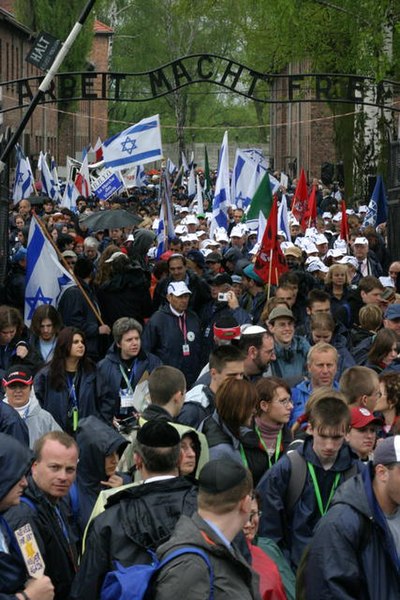Blessed are those who hunger and thirst for righteousness,
for they shall be satisfied.(Matthew 5:6)
This beatitude is the last of the reversal type, or empty -> filled, type.
It is the fourth of the eight that are similar in form ("Blessed are those who... for they shall ..."). The ninth changes from they/those to you and is longer in form.
Who is this describing? If there is blessing for hungering and thirsting for righteousness, just what is righteousness? I think we sort of assume one answer that is close to moral purity or uprightness or sinlessness. While that concept is part of what the term means, it is much richer and broader than that.
The following comes from
The Interpreter’s Dictionary of the Bible:
“Righteousness” can mean:
> to cause to be in right relationship with…
> religious observances or requirements
> to give to those in need as an act of mercy
> the act of doing what God requires
“Righteousness is in the OT
the fulfillment of the demands of a relationship, whether that relationship be with men or with God. Each man is set within a multitude of relationships; king with people, judge with complainants, priests with worshipers, common man with family, tribesman with community, community with resident alien and poor, all with God. And each of these relationships brings with it specific demands, the fulfillment of which constitutes righteousness. The demands may differ from relationship to relationship; righteousness in one situation may be unrighteousness in another. Further, there is no norm of righteousness outside of the relationship. When God or man fulfills the conditions imposed upon him by a relationship, he is, in OT terms, righteous.” (p. 80)
“Generally, the righteous man in Israel was the man who preserved the peace and wholeness of the community, because it was he who fulfilled the demands of communal living… thus tzedekah (righteousness) is sometimes correlated with “mercy” (Hosea 2:19). He cared for the poor, the fatherless, the widow (Job 29:12-15; 31:16-19; cf. Deut. 24:13; Prov. 29:7). He gave liberally (Ps. 37:21, 25-26; Prov 21:26), providing also for the wayfarer and guest (Job 31:24-25; Ps 37:16; Prov 16:8).” (p. 81)
Dwight Pryor (Center for Judeo-Christians Studies) and N.T. Wright (
Paul) argues that in Romans, when Paul writes that God displays his righteousness which comes through faith in Jesus Christ that he is is saying that God is showing covenant faithfulness to his people; more than the imputation of a legal / judicial standing before God... I think this is similar to N.T. Wright's argument also. Both are based, in part, on the "new perspectives on Paul" articulated by E.P. Sanders (but this important discussion is for another day).
Here are some of the ways that Matthew uses the term:
3:15 – “Let it be so now, for thus it is fitting for us to fulfill all
righteousness.”
5:10 – “Blessed are those who are persecuted for
righteousness’ sake, for theirs is the kingdom of heaven.”
5:20 – “For I tell you, unless your
righteousness exceeds that of the scribes and Pharisees, you will never enter the kingdom of heaven.”
6:1 “Beware of practicing your
righteousness before other people in order to be seen by them, for then you will have no reward from your Father who is in heaven.”
6:33 “But seek first the kingdom of God and his
righteousness, and all these things will be added to you.” Interesting to note what this passage is about - what is one of the two principle images or experiences that Jesus uses to make his point here? Don’t worry about what you’ll eat or what you’ll drink.
21:32 “For John came to you in the way of
righteousness…”
Righteousness on several levels or spheres –
1. Covenantal right relationship with God individually. This right relationship lived out faithfully in fulfilling the demands of the relationship, with is first of all, faith.
2. But also through a "working" or "living" faith, through God’s will being done in and through me – ie. behavior.
3. Seeking first his kingdom and his righteousness (6:33). That is, that right relationships with God and people, and people with one another, be established in our midst, in our community, our state, our nation, our world.
I think a very important point to be made here is that
righteousness is generally and principally NOT just individual or personal.
The term
righteousness also can have the sense of "justice” (Colossians 4:1; Hebrews 11:33; Revelation 19:11). Hence the idea could mean, "blessed are those who passionately long for justice in God's world..."
Why do you think Jesus uses this phrase “hunger and thirst for righteousness”? What other terminology could he have used? (eg. “Blessed are those who
work for righteousness”)
(see Psalm 107:5-9; 42:2; 63:1; Isaiah 49:10; 55:1-2; Amos 8:11;)
It's not a passive longing, but an active seeking; recognizing that we are painfully deficient in the things essential to life as God meant it to be.
"...for they shall be satisfied."We find the same term in Matthew 15:32 – the five thousand ate and were “satisfied” (same word). In John 6:35 and Revelation 7:16, we hear of those who will not hunger or thirst any more.
Whether Jesus' blessing is for those who are physically hungry now (Luke 6:21) or those who desperately long for peace and justice in God's world - Jesus promises satisfaction for those disciples of his whose present experience is the deprivation of the good for which God designed his world.
But again, Jesus himself lived out this beatitude, and his passion will transform us as we fix our hearts on it.
> Jesus fasted Matthew 40)
> “I thirst” (John 19:28)
> “My food is to do the will of him who sent me and to accomplish his work” (John 4:34), and the context there is “living water” – “Everyone who drinks of this water will be thirsty again, but whoever drinks of the water that I will give him will never be thirsty forever…” (4:13-14)
> “Out of the anguish of his soul he shall see and be satisfied.” (Isaiah 53:11)
Jesus gave himself to accomplish this righteousness, for us and for the whole world. He will make all things right – and with him those who long for it, who look for it, who pray for it and work for it, who hunger and thirst for it, and who truly eat and drink of his true food and drink, shall indeed be satisfied.


